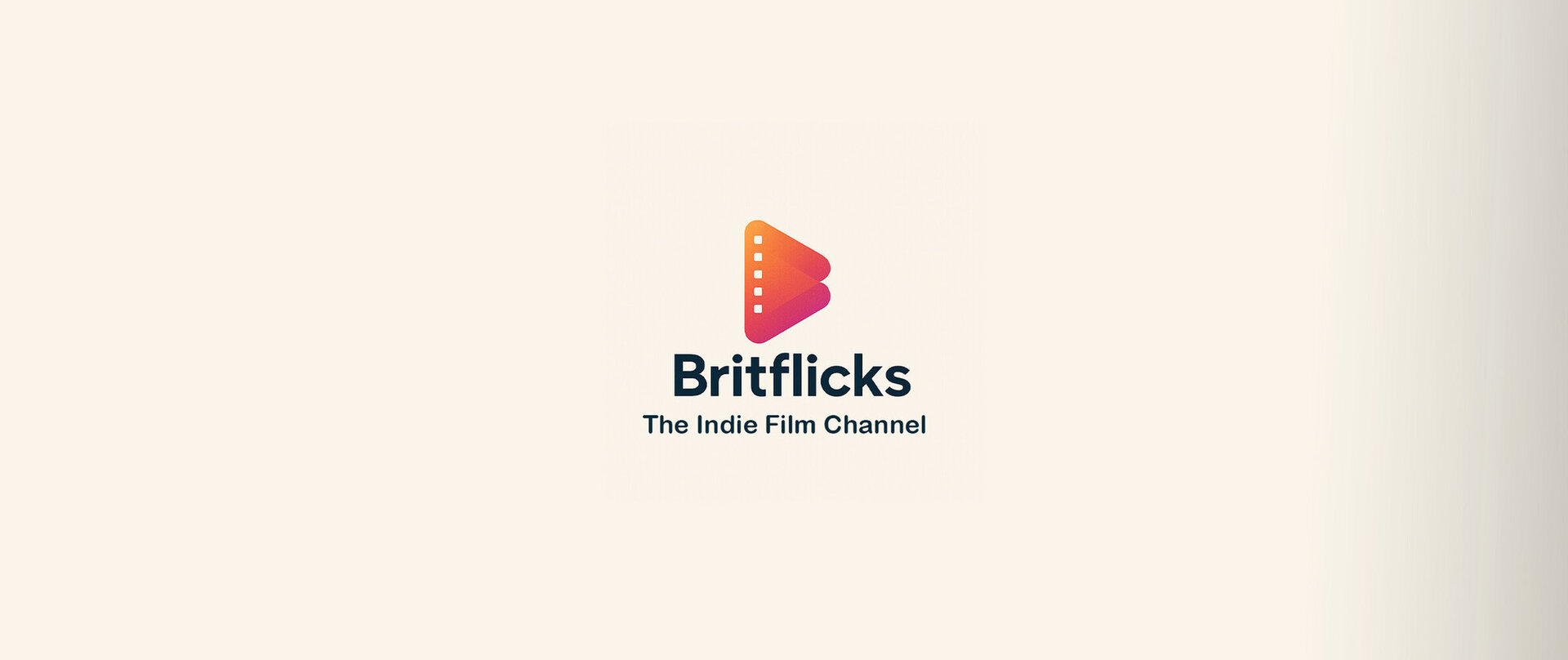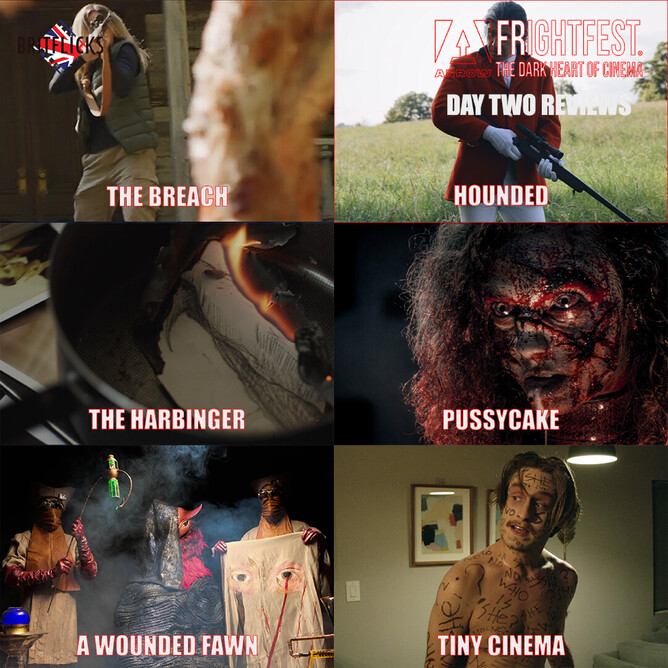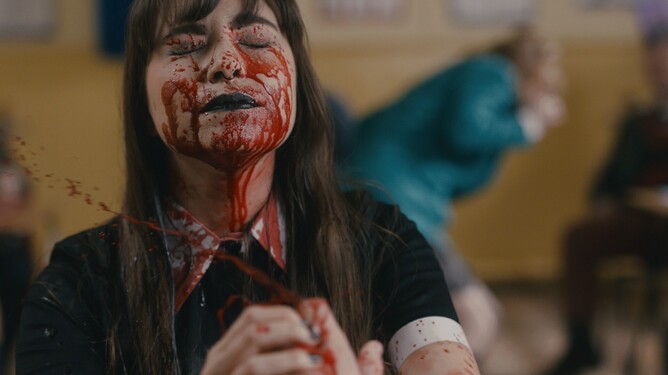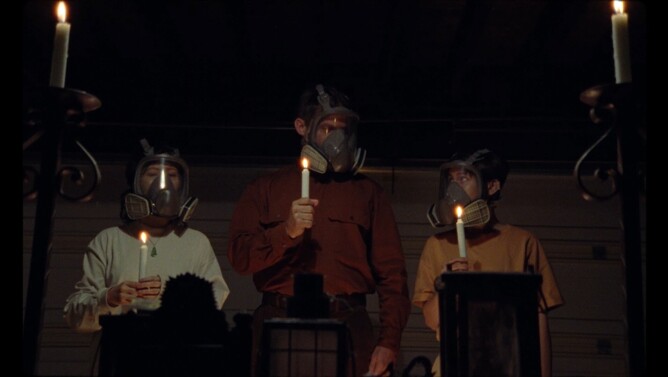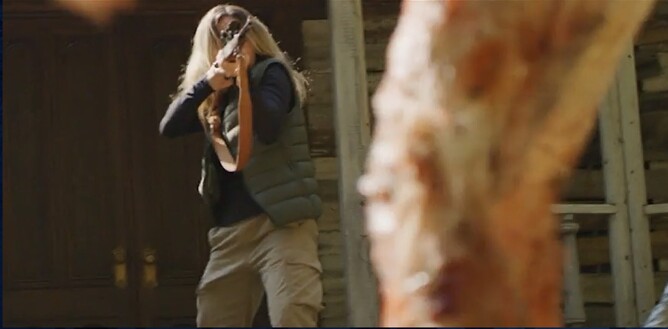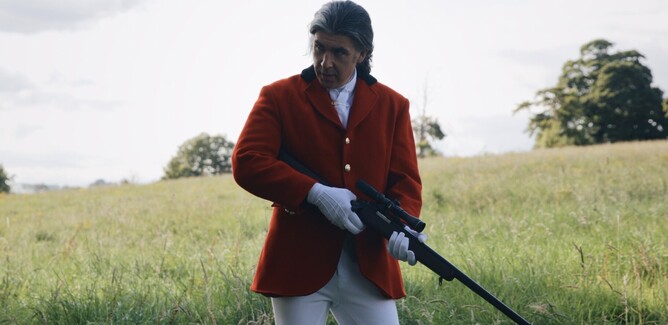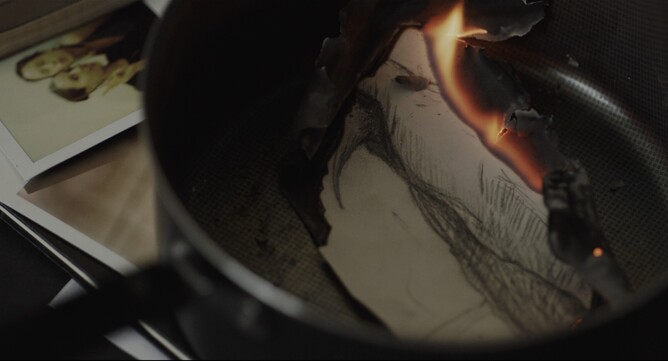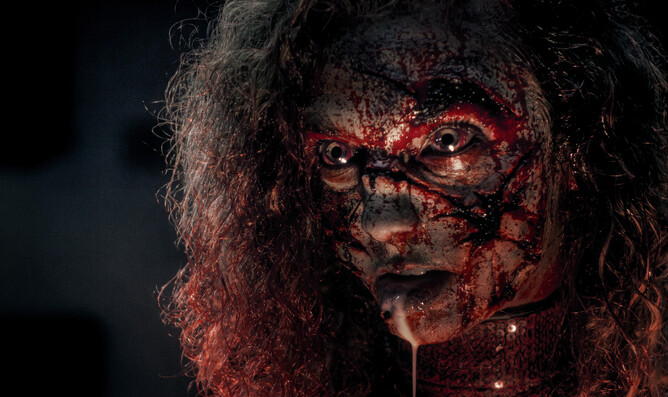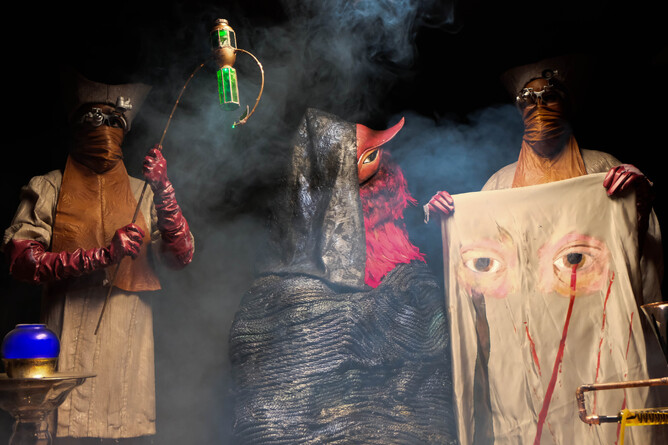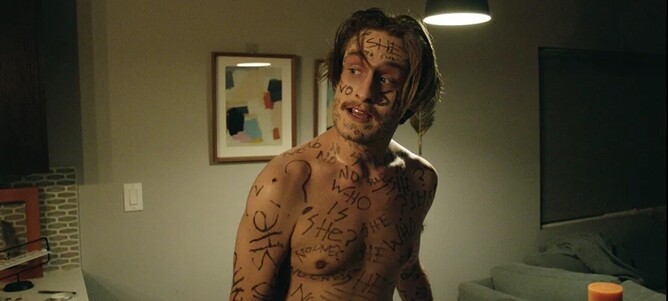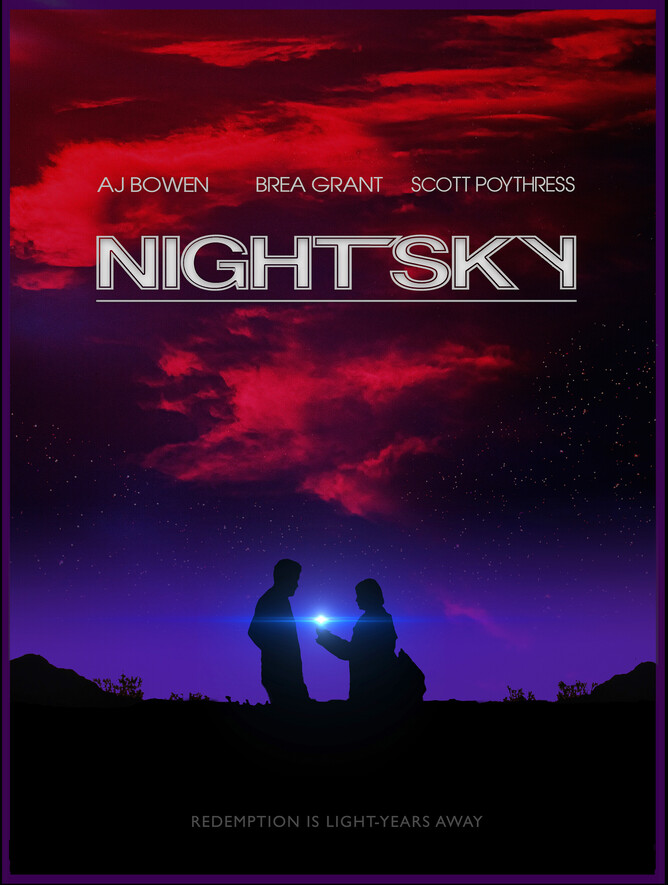FrightFest Day Two Reviews: EATING MISS CAMPBELL, DAUGHTER, THE BREACH, HOUNDED, THE HARBINGER, PUSSYCAKE, A WOUNDED FAWN, TINY CINEMA,
BritFlicks' Stuart Wright reports back from Day TWO at Arrow Video FrightFest, where took a look at EATING MISS CAMPBELL, DAUGHTER - HE BREACH, HOUNDED, THE HARBINGER, PUSSYCAKE, A WOUNDED FAWN, TINY CINEMA and NIGHT SKY.
EATING MISS CAMPBELL
Written & directed by Liam Regan
“Nostalgia is cancer” posits the movie poster for EATING MISS CAMPBELL, but without it, how do you make and/or read a film like this?
For his second feature film, Liam Regan returns to the same fictional UK town of Henenlotter (a name that is in honour to the schlock film director of cult classics like FRANKENHOOKER, BASKET CASE et al, Frank Henenlotter). Our attention is focussed on goth vegan Beth (Lyndsey Craine) who attends an educational establishment in England that thinks it is in a US High School movie, such is the dominance of the American (and Americana) influences and inspirations that Regan draws on beyond the over-the-top violence, gore, bad taste humour and very practical, bloody special effects of his absolute favourite film company TROMA.
The meta nature of EATING MISS CAMPBELL is nailed to the mast right from the start when Beth talks straight to camera, making us fully aware she knows she’s in a film and that among her many gripes about tropes and clichés she ‘fucking hates low budget horror movies’. Only for the filmmaker himself to interrupt her existential crisis with the clapperboard so he can get on with making the damn movie while she bleeds out from a very graphic, wrist slashing, failed suicide. There’s no escaping her fate - Beth is destined to be in a fucking low budget horror movie whether she likes it or not. Even Clarissa, one of the three ‘mean girls’, played by Emily Haigh, steps in to stop one of Beth’s pieces to camera to assert: “Enough exposition… They get it”. It all feels more DETENTION (2011) than it does HEATHERS (1988) or MEAN GIRLS (2004), but they’re both in there somewhere for sure.
At times EATING MISS CAMPBELL is plain old juvenile when it goes for its laugh. It belies the playful tone and self-awareness of the lead character and her cartoon interactions with the other pupils, teachers and parents. All too often the bluntness of the unsubtle takes away from, rather than adds to the drama set in motion as it seems Regan is shoehorning in observations that make him laugh or angry at the cost of his own narrative about vegan turned cannibal who falls in love with her teacher and ends up being served up as the main course at a ceremonial meal of Henelotter’s great and good.
Be warned, rape, paedophilia, mass school shootings, Harvey Weinstein, suicide and praise for Hitler are given the same tar black, anarchic comedic treatment as a knowing joke about how nudity is praised when it’s in A24 horror films. Although arguably, Lloyd Kaufman speaks the two most offensive words in the film for his blink and you’ll miss it cameo. It definitely feels too early for that particular gag to be doing the rounds, but this is but only one opinion on that matter. Hamish Saks (BOOK OF MONSTERS) as his cinematographer ensures EATING MISS CAMPBELL looks great. This adds a sheen of quality to what is a much more assured film compared to his inaugural feature MY BLOODY BANJO (2016). The story can get bogged down trying to service the army of supporting characters, but when the film is most concerned with Beth’s meta-movie/parental problems that is when EATING MISS CAMPBELL works best.
DAUGHTER
Written & directed by Corey Deshon
Out in the Californian hills who knows what goes on? Corey Deshon has imagined one such family living in splendid isolation, without a neighbour in sight. They are a tight run, nameless unit: Father, Mother, Brother and Sister/Daughter. Daughter (Vivien Ngô) is the latest addition to household. She’s around 20 and chained to the floor like a prisoner. Father (Casper Van Dien) lectures her on his honourable intentions and the promise of zero violence if she behaves for the next two years and then she will be set free. His intimidating, matter of fact, pep talk omits the everlasting psychological damage of kidnapping and keeping someone against their will. Regardless, Daughter keeps her head down during the arduous induction process, designed to break her will with very little human contact, stuck in the one room she’s chained up in. Good to his word he doesn’t lay a hand on her and is pleased with the progress she makes. Time to introduce her to her Brother (Ian Alexander) and finally get to see the rest of the house. The colours of the décor are browns, tans and beiges. The same palate could be used to describe the family’s outfits. Combined they create a warm, comfortable and consistent environment for your eyes to feast on. Deshon shot the film on 16mm and these colour choices for the interior are like he invited the desert hills outside into the house. It’s almost calming, but this is an illusion created by the domineering Father. He believes there is sickness out there. Only they are safe in this broken world if they abide by his rules. His docile partner Mother (Elyse Dinh) tippy toes around the home, entertaining, and never challenging this belief. Whereas the Brother is entirely brainwashed – to the point of arrested development. You are reminded of Yorgos Lanthimos’s debut feature DOGTOOTH (2009) and the absurd way just being cut off can corrupt what is normal behaviour.
You have to believe the choice of two Vietnamese actors to play Mother and Daughter is a purposeful choice in keeping with the themes and ideas at the heart of the film. In that sense, it could be argued that DAUGHTER is about how easily people can be trafficked in the USA. You could swap the family home set up for a sweat shop that profits from slave labour and there’d be little difference to the pertinent points that Deshon appears to be making.
Father’s grip on this reality and this family is tight. He’s a dictator to just three people and no one is going to bring down his reign anytime soon. It’s apparent that Daughter isn’t the first to be introduced to Brother as a play thing for him. A frightening thought hits you about how people just disappear without trace, but you remember we are only seeing the world from the point of view of Father’s fiefdom. No doubt family and friends somewhere in the USA (or the wider world) are grieving the loss of their loved ones, hoping that they might turn up safe, one day. Daughter performs her duties well and Brother appears to be growing from spending time in her company. Just her questioning of authority (Father) is enough to poke holes in this farcical existence and his conspiratorial/quasi-religious dogma..
Father never relaxes and is on constant edge because he knows Daughter represents the outside world (the truth to his lies as it were) and that will poison Brother if he learns too much from her. Daughter is shrewd in how she traverses this existence, but occasionally falls foul of Father’s expectations and short temper. What’s fascinating is how Father only sees the threat of Daughter, but is ignoring the rapid rate at which Brother is developing as a person. His childlike wonder is slowly turning into something that require engagement that is more intellectually stimulating; Daughter manages to scratch that itch right under Father’s nose. A quiet rebellion has begun and there’s nothing Father can do stop himself from being overthrown.
DAUGHTER is a light of touch film. Dialogue is sparse and any verbose moments are confined to Father’s delusions of grandeur that his Faustian deal with Daughter is really anything more than a waiting game for when she gets a chance to break loose. There are tense scenes where the deafening silence of their isolated location is enough to create discomfort in the audience. Deshon uses this to his advantage throughout the film to the point where silence is a fifth character – the audience perhaps - waiting to say something. There’s a bold musical sequence that allows us into the head of Daughter and Brother and is a cinematically interesting reminder that defiance begins with a thought before it is translated in to actions. As directorial debuts go, DAUGHTER is both assured and full of promise for future films Deshon may go on to direct.
THE BREACH
Directed by Rodrigo Gudiño
Screenplay by Ian Weir & Craig Davidson
Based on the ‘The Breach’ by Nick Cutter – an Audible Original
Chief of Police in the tiny town of Lone Crow, John Hawkins finds a boneless body washed up on the shore of the local river. The search for answers leads to the remotest cabin, in the most inaccessible part of forest. Teaming up with the pathologist, Jacob, and his boat owning ex Meg, John heads out to the last known location of his John Doe, now identified as particle physicist Cole Parson. What they find there appears to be an abandoned home. Further investigation leads to a room full of crazy sketches, polaroids and ramblings of a mad man stuck to the wall. In the basement is a contraption that looks straight out of STRANGER THINGS. And like the popular Netflix show, Parson has used the device to dip in and out of our reality and has brought something bad back with him. Rush guitarist Alex Lifeson makes a few brief appearances as a conspiracy nut. His sole purpose is to unpack who Cole Parson’s was and discredit all modern physics as black magic through Skype calls with Connie, the police officer left back at the station to hold the fort and intelligence grab.
Parson’s wife suddenly enters the story towards the mid-point, unaware her husband is even dead. She is the segue to the HP Lovecraftian elements that have been busting to get out and blows John’s investigation (and the horror of the situation) wide open.
During the second half of the film, THE BREACH ends up juggling too many points of view. Sub-plots like John and Meg’s on/off relationship coupled with the reveal that Jacob is the angry ex- add very little to the stakes or the mystery of a science project gone wrong. Once we’re past the plotting out what Cole Parsons achieved and why, the practical effects are fun and gooey in the final act, but so much of the procedural drama to get there just drags - falling over itself to painstakingly explain the science and Cole’s motivation to the audience. Sadly, the losing – human - battle against what has been brought into our realm was all too brief and the abrupt flash forward to an exposition laden epilogue only cemented that feeling.
HOUNDED
Written by Ray Bogdanovich & Dean Lines
Directed by Tommy Boulding
Leon (Nobuse Jr) and Chaz (Malachi Pullar-Latchman) are brothers. Together with Vix (Hannah Traylen) and Bod (Ross Coles) they are onto a good thing. An antique dealer, played by Larry Lamb, tips them off about a wealthy person’s house. They rob a single item - like a painting - and are paid handsomely. This is Leon’s desperate plan to ensure Chaz can afford to attend university. In some respects they are four honourable, but naïve thieves, like Rocky, Alex and Money in DON’T BREATHE (2016). The haul is always specific, they work to a strict code, the victims of the crime are not really going to miss what’s taken and ultimately for our quartet from Peckham this high risk strategy is, in their minds, their only way to a better life. A whiff of class war hits the nostrils and how you see this film will be determined by how the word ‘honourable’ lands with you.
After their latest haul, Leon has amassed enough to send Chaz off to university. They can stop now, but pressure from Vix, Bod and even Chaz to do another job means he concedes to do one more. Mistake. Not only can they not find the ceremonial hunting dagger they’ve been sent to rob, they are ambushed and tasered by the homeowner – Lady Redwick, an aristocrat played with real venom by Samantha Bond. The quartet are dumped in a field, lectured about how the ruled used to know their place in society by Redwick, drenched in fox piss and left to find their way home. Wandering aimlessly across open countryside without a hope of finding civilisation, let alone Peckham, they hear the horns and barking dogs of a hunt. It doesn’t take them long to realise they are the prey. HOUNDED now switches to a very British version of READY OR NOT (2019) with shades of THE HUNT (2020) and for fans of Ozploitation, a throwback to TURKEY SHOOT (1982). The class commentary is rarely subtle, and nor should it be. Class is so endemic in much of the inequities that exist in British society today. It’s a film about knowing your place. It’s a film about a once authoritarian elite trying to reassert their birthright power over inferiors they see as their resource and/or expendable. Eventually, the hunted become the hunters and turn the tables on their aggressors. Director Tommy Boulding delights in throwing the violence back in the Redwicks’ faces. There’s a wonderful set piece where Chaz and Vix escape a farmhouse siege using silver foil, a microwave and the gas of the hob on full blast. James Vance as Hugo Redwick goes to town during this sequence and demonstrates how ugly and delusional the entitled, privileged lunacy of a public school education and centuries of doing whatever pleases you can make a person. However, no matter the absurdity of these wealthy people or how much the gang fight back, the real power – money and land - always remains with the Redwicks. There really is no escape from this nightmare – both on a micro and macro level. That would be too simplistic. Instead, Ray Bogdanovich and Dean Lines’ brilliant script side steps death to everyone and force Chaz to make a big decision. Either forego his emotional need for revenge and mostly likely die or be pragmatic like the wealthy elites have done for centuries. Lady Redwick presents it like she is being the honourable one now, benevolent even, but she is only proving she remains above the law and Chaz never will. HOUNDED is a darkly satirical, suspenseful, all action fight to death through some of England’s green and pleasant land. Where EDEN LAKE (2008) succeeded in exploiting ideas about a violent, nihilistic underclass that Daily Mail readers had been taught to fear, HOUNDED takes liberal pot shots at the landed gentry who divide and conquer to maintain their status and subjugate those not born to rule. Ring any bells?
THE HARBINGER
Written & directed by Andy Mitton
Andy Mitton’s 2018 THE WITCH IN THE WINDOW was a great ghost story with a clever dissociative narrative that kept the film just one step ahead of the audience. For THE HARBINGER he repeats that trick but instead of ghosts, he’s drawing on mythical demons that haunt our dreams. Set during the COVID-19 outbreak and at the height of the lockdowns, the story revolves around Monique, her dad and brother, and her old college buddy Mavis. The family bubble is working efficiently, but that unity is broken when Monique gets a call from traumatised Mavis – she’s having bad dreams that are lasting for days. This is the pre-vaccination pandemic period and Monique is faced with a real dilemma. Go into the city to help her friend and risk bringing Covid back to her elderly dad and brother, or leave Mavis to fend for herself. She chooses the former and the reuniting of two old friends, isolated from human contact, in the context of a pandemic we’ve all lived through is a genuinely moving scene that many will find instantly relatable. The removing of the mask, daring to come within six feet of one another, the awkward first hug etc. These moments feel like ghosts of our own recent past being revisited. Monique agrees to stay with Mavis and help her work out her way out of her dream/sleep issues. Only Monique gets dragged into her own nightmares.
From here on in THE HARBINGER plays with your concept of reality as the creepiness of the film crawls all over you. It’s a slow burn horror that ratchets up the fear factor without you noticing you’re in the middle of it – like the frog being boiled alive not noticing the water go from cold to hot until it’s too late. Owing to the unknown nature of the myth at hand, Mitton turns to the “expert over a video call” trope. However, hats off to him because he really messes with the form here. Wendy, the demonologist is not the perfectly logical, exposition machine we are used to seeing in horror films. Instead, she is genuinely frightened of ‘catching’ what Mavis and Monique have both uncovered. This is no necessary information exchange for the audience to follow the plot, this is a dramatic scene and only adds to the mystery that unfurls as Monique continues to slide into dreams within dreams. The harbinger – think plague doctor with the pointy nose mask - that Mitton has chosen to scare us with is its own supernatural virus. A demon who is exploiting the pandemic because we’re all so isolated. It’s a great metaphor for the fear and confusion of the last few years, but THE HARBINGER is also a seething comment on those who chose to ‘not believe’ in Covid too. Only a filmmaker with an attention to nuance and deft of touch like Andy Mitton would look at the pandemic and see it as only the backdrop for something much scarier and threatening to the future of humankind.
PUSSYCAKE
Directed by Pablo Parés
Written by Maxi Ferzzola
PUSSYCAKE wears its STRANGER THINGS influences on its sleeve in the opening prologue sequence. A teenage boy must recreate his father’s elaborate science experiment to get the missing parent back from another reality. It works, but what else did he bring with him into our world? Cut to Pussycake the four-piece rock band the film takes its title from. Think pops answer to L7, but with a stylist. They’re travelling cross country to gig. When they reach their destination, the venue appears abandoned and there’s not a soul about in the town. Turns out an other-worldly, parasite is attaching itself to a human vessel and using them to zombify and collect up everyone that gets in its way – Pussycake are next. Much gore and frightened confusion follows as we learn – unsurprisingly - the town they are in, is where the inter-dimensional experiment took place.
The great thing about extraordinary villains from another realm is that once that’s established the film has permission to introduce all kinds of madness onto the screen and director Pablo Parés revels in that freedom. Out of the bloody race for survival emerges the story of Elle, the singer in the band, and her relationship to the drummer Sara. This fragile woman, traumatised by her domestic abuse past, and now mothered by Sara, grows into the unlikely hero of PUSSYCAKE. The gore is viscous and gooey - the host of the parasite sprays its victims with a sustained jet of milky (dare we say cum-like) paste out of their mouth. The action is frenetic and once the first bandmate dies, this crazy film never lets up until there’s only one member of Pussycake standing.
A WOUNDED FAWN
Directed by Travis Stevens
Written by Nathan Faudre and Travis Stevens
Bruce (Josh Ruben) is a killer who sees visions of a man-sized red owl before he murders his victims – the voice in his head that compels him as it were. Meredith works in a museum and is relieved to be finally out of a long-term abusive relationship. The two of them have recently started dating and are going away to Bruce’s remote cabin in the woods. He’s the perfect date, for the most part: good food, nice wine, but little ticks and menacing mannerisms slowly pull back the curtain on who we know him to really be – a serial killer. The red owl makes its appearance and Linda is attacked but she fights back to bait and switch the movie entirely. Here the movie subverts all expectations of a cat and mouse, push and pull fight to the death between Meredith and Bruce. Instead the film enters a sustained period of Bruce at total war with his inner demons as Meredith – in many masked guises - gets him to wrestle with his guilty conscience and compulsion to kill.
The film is Travis Stevens third feature in the director’s chair. He pulls out all the aesthetic and thematic stops for this horror adventure into the dark corners of a killer’s warped mind. The use of visually stunning tableaux are often their own works of art in of themselves. The fact they serve a bigger narrative purpose speaks to the assuredness of the creative minds behind the film. One particular stunning moment brings to life a Leonora Carrington painting. For those of you with better knowledge of female surrealist art than Britflicks, there are more of these references to revel in. When Stevens finally snaps the film out of Bruce’s fever dream, he subverts expectation one last time. A fixed frame of triumphant Meredith looking down on a pathetic Bruce squirming around in the mud. It is truly majestic. No score. Harsh daylight. Just the crocodile tears and faux vulnerability of an evil man stripped of all his menace. It is made all the more powerful by the unflinching camera that stays with this moment for what seems like a lifetime. The perfect transgressive (or is that progressive) end to a killer movie. Where JACOB’S LADDER took you up heaven, A WOUNDED FAWN is more like a slide down the snake into a waking, but deserved hell.
TINY CINEMA
Directed by Tyler Cornack
Co-written by Tyler Cornack, Ryan Koch and William Morean
Tyler’s Cornack’s debut feature BUTT BOY (2019) was a wonderfully absurd noir thriller about the hunt for people disappearing up someone’s butt. TINY CINEMA is a horror anthology that offers six portions of more of the same, out-there story telling with a tar black sense of humour at its root. Whether it’s a woman dating a corpse who she reanimates only to discover he’s a pretentious, hipster arsehole, or an eccentric scientist, think Doc from BACK TO THE FUTURE (1985), sending couriers and pizza delivery pizza boys to his desert lab to convince them that he’s from the future and the only way to stop an asteroid from destroying the earth is to f*ck him. It’s proudly dark as hell with a shit eating grin on its face. Chapter 3 – BUST! Is probably the most spectacular in going where it threatens to go in the money shot – pun intended - that concludes a story of one man’s struggle with getting hard since he was traumatised by a home burglary. Stand out performances include Olivia Herman in EDNA. Her downbeat, straight performance of a woman drinking herself through loneliness until she finds a corpse to love exemplifies the magic and appeal in Cornack’s work. You’re laughing at the ridiculousness while at the same time you are drawn into a drama that unfolds confident it is guaranteed to turn on a sixpence in the direction you least expect. Every story drops you right into the action and is fuelled by lean and effective cinematic storytelling to get you to the punch. A favourite line of dialogue was “You just snorted my dad”. Out of context it’s no spoiler but it’s enough of a clue, if you’d not grasped it already, as to the tone of TINY CINEMA. All horror anthologies should be prepared to be this bold and smart.
NIGHT SKY
Writer by AJ BOWEN & JACOB GENTRY
Directed by JACOB GENTRY
Petty thief Oren’s (AJ Bowen, YOU’RE NEXT) last 12 hours or so in Los Angeles have been wild to say the least. Dying from a gunshot wound to the stomach, he wakes up the next day without so much as a blemish, looking up at a strange woman insisting he must drive her to New Mexico. After several false starts where Oren tries to give this miracle worker Annie (Brea Grant) the slip he concedes to the helping her reach a specific meeting point in the New Mexico desert.
Out on the open road the possibilities are endless. It is out here in the splendid isolation that Oren and Annie begin to bond. He’s the hardened criminal only ever concerned with looking after number one. Whereas she’s completely open minded and non-judgemental. At the start she appears naïve, bordering on the absurd at times. Oren takes advantage of this in the earlier stages simply for his own entertainment. While driving past a concentration of electricity windmills she asks what are they. Oren tells her they’re robot flowers. Annie simple accepts his answer at face value, much to the bemusement of Oren.
Eventually, and with the boost of single malt whisky their relationship grows. Slow dancing in a motel it all comes to a head when Annie confesses she’s an alien. Naturally, Oren doesn’t believe her, but comes to accept that she believes it to be true. Where he was once reluctant to drive her to the end of the road, he’s now makes it his life’s mission to get her to her destination. The threat is not just the ticking clock of getting Annie there on time, but they also have to outrun a psychopathic hitman (Scott Poythress). Like Rutger Hauer in THE HITCHER, Poythress’s character has a nasty habit of always being there.
Bowen and Poythress revel in their equally anti-social, cynical and disillusioned characters. The only difference is that Oren will jump at the chance of redemption if it gave his life purpose. They are noir archetypes American fiction has been obsessing over since the Great Depression and they’re no less relevant to 21st century America. Whereas Grant’s playfulness and wonder is forever disarming. She is the optimism we all once possessed until life took a hold of us and you begin to worry that if she stays on earth much longer she may well end up just as tarnished as the rest of us.
In the final act when all seems doomed to fall apart, Gentry pulls no punches in delivering on the slow burn promise of something spectacular. NIGHT SKY is an awe-inspiring high concept, lo-fi punky upstart of sci-fi road movie that basks in the gloomy eeriness of an almost endless magic hour across the highways of South West USA and areas of natural beauty such as the Grand Canyon and Monument Valley. With echoes of STARMAN and CLOSE ENCOUNTERS very much to the fore, but with a bleak noir edge and a nod to John Ford Westerns he ensures grown up audiences will fear the worst and yet still hope for the best. We humans are built that way, I guess.
For more of our Arrow Video FrightFest coverage click on the links below
Full Arrow Video FrightFest Line-Up Here


